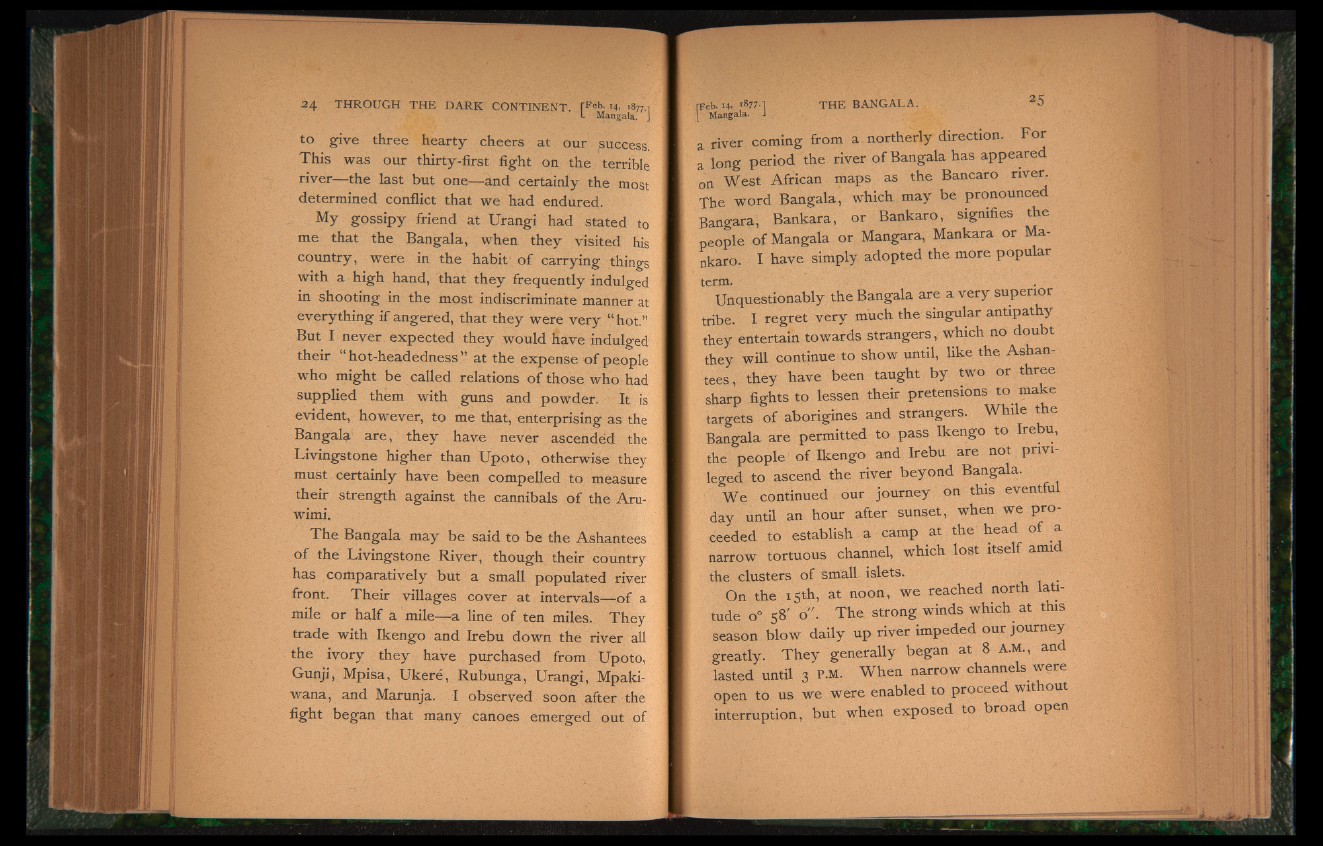
to give three hearty cheers at our success.
This was our thirty-first fight on the terrible
river— the last but one— and certainly the most
determined conflict that we had endured.
My gossipy friend at Urangi had stated to
me that the Bangala, when they visited his
country, were in the habif of carrying things
with a high hand, that they frequently indulged
in shooting in the most indiscriminate manner at
everything if angered, that they were very “ hot.”
But I never expected they would have indulged
their “ hot-headedness ” at the expense of people
who might be called relations of those who had
supplied them with guns and powder. It is
evident, however, to me that, enterprising as the
Bangala are, they have never ascended the
Livingstone higher than Upoto, otherwise they
must certainly have been compelled to measure
their strength against the cannibals of the Aru-
wimi.
The Bangala may be said to be the Ashantees
of the Livingstone River, though their country
has comparatively but a small populated river
front. Their villages cover at intervals— of a
mile or half a mile— a line of ten miles. They
trade with Ikengo and Irebu down the river all
the ivory they have purchased from Upoto,
Gunji, Mpisa, Ukere, Rubunga, Urangi, Mpaki-
Wana, and Marunja. I observed soon after the
fight began that many canoes emerged out of
[Feb. i4i i877-1 I g Mangala. J
a river coming from a northerly direction. For
a long period the river of Bangala has appeared
on West African maps as the Bancaro river.
The word Bangala, which may be pronounced
Bangara, Bankara, or Bankaro, signifies the
people of Mangala or Mangara, Mankara or Ma-
nkaro. I have simply adopted the more popular
term.
Unquestionably the Bangala are a very superior
tribe. I regret very much the singular antipathy
they entertain towards strangers, which no doubt
they will continue to show until, like the Ashantees,
they have been taught by two or three
sharp fights to lessen their pretensions to make
targets of aborigines and strangers. While the
Bangala are permitted to pass Ikengo to Irebu,
the people of Ikengo and Irebu are not privileged
to ascend the river beyond Bangala.
We continued our journey on this eventful
day until an hour after sunset, when we proceeded
to establish a camp at the head of |
narrow tortuous channel, which lost itself amid
the clusters of small islets.
On the 15th, at noon, we reached north latitude
o° 58' o". The strong winds which at this
season blow daily up river impeded our journey
greatly. They generally began at 8 A.M., and
lasted until 3 P.M. When narrow channels were
open to us we were enabled to proceed without
interruption, but when exposed to broad open